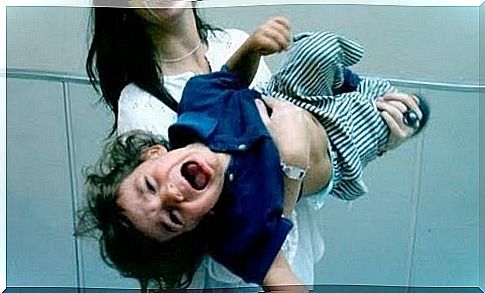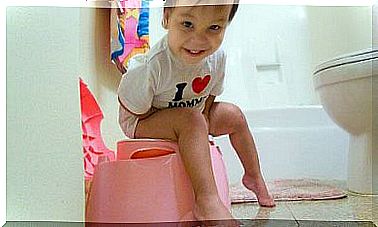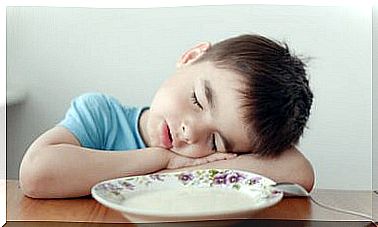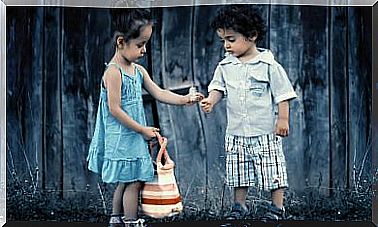You Have To Keep Your Kids From Becoming Spoiled Kids my

Babies become spoiled children when we give in too much. When we spoil our children, we almost always make them not appreciate what they have, which leads them to want more and more.
When children are young, they want everything because they don’t know any other way to ask for things. This attitude is considered normal up to 4 years of age at the latest.
However, when they get past that age, they often want it because they want to, thus showing a temperamental and spoiled behavior.
What father or mother does not remember the shame their children put them through when they threw a Homeric tantrum at some meeting?
But the truth is, sometimes, without knowing it, we are responsible for this behavior. So it is better to prevent your children from becoming spoiled children. Doing so will be better for your child and for you too, no doubt.
Discover some traits presented by spoiled children
Children’s constant desires almost always go beyond the limit and give rise to uncomfortable situations, since the child is tricky and has an attack of naughty behavior that disturbs the family environment or any meeting.
Generally, very young children are usually spoiled and the treatment given to this behavior from the first moment is crucial, especially in order not to prolong and damage the personality of the future teenager.

However, sometimes it is not so easy to identify whether your child is spoiled or not. Therefore, it is good to remember what are the most common traits of this type of behavior:
A spoiled child is stubborn. She is capable of tantrums, tantrums, and other inappropriate behaviors to draw attention to what she wants if you say no.
Lack of empathy and the inability to respond to the wants and needs of others is one of the characteristics of a self-centered child, who finds that almost everything revolves around his navel.
Generally, this type of behavior makes these children unhappy and dissatisfied, children who only settle down when they quickly see their wishes met and who soon after get tired and complain again.
Also, they don’t value things, as they often don’t care about anything. This, sometimes, is because they are able to get more things easily by doing tricks.
Consequently, they feel that they are able to get everything they want with little or no effort, which prevents them from valuing work, discipline and good education.
A spoiled child can be corrected whenever their inappropriate behaviors that led to this situation are corrected. Whenever you correct this type of behavior, you must demonstrate firmness and balance.
Some tips on how to fix a spoiled child
If you see similarities between your child’s case and what we described above, here are some tips on how to correct this misbehavior:
- It is important for the child to learn the difference between want and need. If you give in to her will when she wants a toy, you need to not give her the toy she wants while she’s having a tantrum.
- She’s going to have to settle for having this toy for a while.
- Rules and limits help the child to know what to do and what not to do. And the sooner they know how to deal with these limits, the better they will understand.
- To keep her from having whims all the time, you can establish certain routines, such as buying treats only on Sundays or giving away a toy at a special moment.
- For young children, an effective solution to avoid uncomfortable situations generated by whims is to apply the technique of distraction, which consists of looking for an alternative, something different that does not meet the child’s wishes, but that is attractive enough to distract them and make her forget about the desired object.

It is important that education that seeks to prevent this pampered behavior is carried out in the same way by both parents.
If one of them always has a more permissive behavior than the other, it is likely that the child will end up looking for the one that satisfies his will, denied by the other parent.
It is normal for certain family members or adult friends to have a more permissive behavior towards children and to give in to their whims.
You don’t have to ban these gestures. But it is necessary to make the child understand that these are special situations, and that this is not why they can act as they wish.
The “no” in creation
You need to understand that saying “no” to your child should be as natural a behavior for you as saying “yes”.
Try to do this lovingly, without getting upset or getting carried away by his possible reactions. These reactions, of course, will be different from when they receive a “yes” answer.
Be firm when your child reacts negatively to a “no” and try not to negotiate decisions already made. This will help you to think very carefully about your answer.
When the decision has already been made, keep it to the end, try to make the “no” compatible with the child’s request and that you do not react based on your state of mind or according to the emotion of the moment, but with an adequate reaction to the situation that presents itself.
Don’t take “no” for an answer when you’re angry, tired, or because you’ve let yourself get carried away by what you were feeling at the time or past behaviors.









